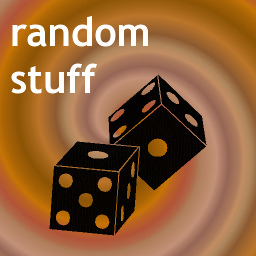 Everybody’s got some core beliefs about how the world works. (And yes, that’s one of mine.) Certain outcomes are more likely than others, certain mythic elements actually pop up. Maybe they’re expressed in terms of religion. Maybe they’re expressed in terms of “oughts” and “shoulds”. Commonly, you’ll hear them most openly talked about in terms of story.
Everybody’s got some core beliefs about how the world works. (And yes, that’s one of mine.) Certain outcomes are more likely than others, certain mythic elements actually pop up. Maybe they’re expressed in terms of religion. Maybe they’re expressed in terms of “oughts” and “shoulds”. Commonly, you’ll hear them most openly talked about in terms of story.
It doesn’t really matter how an individual characterizes this sense of the underpinning structure of the universe. Just that as authors — and people — that we recognize that it exists.
This is the mechanism where small events have large emotional impacts for characters — and people. Consider my really rather overwrought reaction to how the character of Donna Noble is dealt with in Doctor Who (caution: spoilers).
These are the underpinnings that we each have to believe. We selectively edit our perceptions and memories, we emphasize the evidence, we do whatever we have to. Whether you believe that “it’ll all work out somehow” or that “people are always rewarded by their actions” or that “love will out” or “the universe gives us nothing more than we can handle” – it all works for us.
Until it doesn’t. Until you’re faced with some evidence that you can’t ignore, rewrite, or work around. Until you are forced to realize that maybe the way you thought everything works isn’t right at all. This isn’t just yanking the carpet out, this is yanking the bloody planet out from underneath someone.
And it’s here that stories – whether real, true, or some combination of both – have their power.
Because our characters – and ourselves – can realize that everything they believe in is false.
And we can go on believing anyway.
